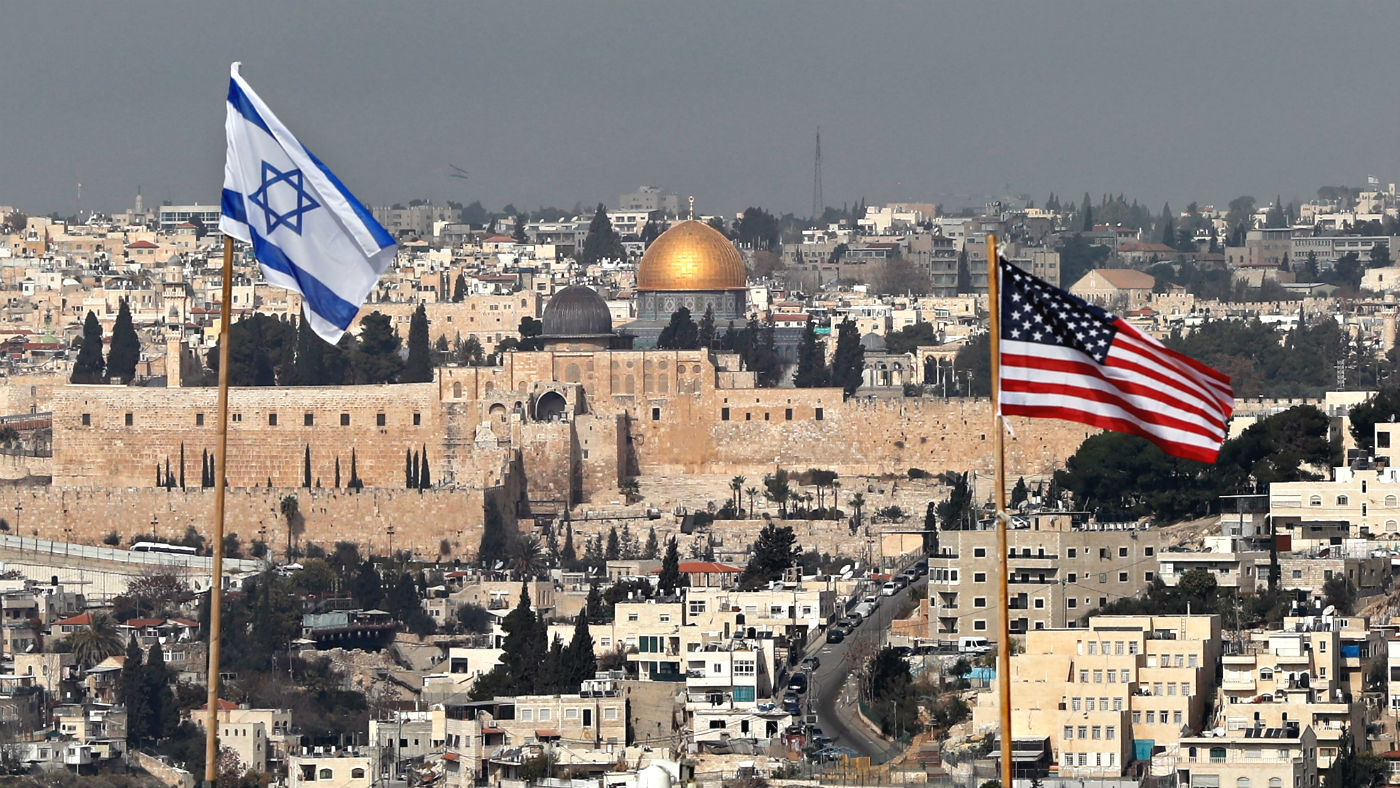East Jerusalem declared capital of Palestine by 57 Muslim nations
Islamic leaders sign letter condemning Donald Trump and say US has relinquished its role as Middle East peace broker

A free daily email with the biggest news stories of the day – and the best features from TheWeek.com
You are now subscribed
Your newsletter sign-up was successful
Leaders of Muslim nations have declared East Jerusalem the “occupied capital” of a Palestinian state, in a rebuke to Donald Trump’s announcement that the US will recognise the Holy City as the capital of Israel.
Trump’s decision last week drew condemnation from across the Muslim world, as well as from western leaders, the EU and UN, and sparked mass protests.
Meeting in Istanbul, the 57 Muslim nations that make up the Organisation of Islamic Co-operation signed a communique declaring Trump’s decision “null and void”, and claimed the move signalled Washington’s withdrawal from its role in the Middle East peace process.
The Week
Escape your echo chamber. Get the facts behind the news, plus analysis from multiple perspectives.

Sign up for The Week's Free Newsletters
From our morning news briefing to a weekly Good News Newsletter, get the best of The Week delivered directly to your inbox.
From our morning news briefing to a weekly Good News Newsletter, get the best of The Week delivered directly to your inbox.
Addressing an emergency meeting of the group, Palestinian President Mahmoud Abbas said that “Jerusalem is and always will be the capital of Palestine” and described Trump’s decision as “the greatest crime”.
He also repeated calls for the UN to take over leadership of the peace process, “since [the US] is biased in favour of Israel”.
Revered by Jews, Muslims and Christians, Jerusalem was divided by the UN as part of the post-war partition of Israel and Palestine. In 1967, Arab East Jerusalem was captured by Israeli forces during the Six Day War and later annexed in an action not recognised by the US, until now.
The issue of Jerusalem has dominated Palestinian-Israeli relations over the past half century and remains the major stumbling block to peace in the region.
A free daily email with the biggest news stories of the day – and the best features from TheWeek.com
Following last week’s announcement, which was applauded by Israel, Trump said his decision was nothing more than “a recognition of reality” and would not affect any peace agreement. Yet this has not stopped some of his staunchest Middle Eastern allies, including Saudi Arabia, from expressing concern at its potential repercussions.
King Abdullah of Jordan, which signed a peace treaty with Israel more than 20 years ago, told the Istanbul summit he rejected any attempt to change the status quo of Jerusalem and its holy sites. Iran, which has repeatedly called for the destruction of Israel, said the Muslim world should overcome internal problems through dialogue in order to unite against a common enemy.
However, says the BBC’s Mark Lowen, “some Muslim leaders are more pro-Trump than others and there is little chance that this summit will change US policy”.
-
 What to know before filing your own taxes for the first time
What to know before filing your own taxes for the first timethe explainer Tackle this financial milestone with confidence
-
 The biggest box office flops of the 21st century
The biggest box office flops of the 21st centuryin depth Unnecessary remakes and turgid, expensive CGI-fests highlight this list of these most notorious box-office losers
-
 What are the best investments for beginners?
What are the best investments for beginners?The Explainer Stocks and ETFs and bonds, oh my
-
 Epstein files topple law CEO, roil UK government
Epstein files topple law CEO, roil UK governmentSpeed Read Peter Mandelson, Britain’s former ambassador to the US, is caught up in the scandal
-
 Iran and US prepare to meet after skirmishes
Iran and US prepare to meet after skirmishesSpeed Read The incident comes amid heightened tensions in the Middle East
-
 Israel retrieves final hostage’s body from Gaza
Israel retrieves final hostage’s body from GazaSpeed Read The 24-year-old police officer was killed during the initial Hamas attack
-
 China’s Xi targets top general in growing purge
China’s Xi targets top general in growing purgeSpeed Read Zhang Youxia is being investigated over ‘grave violations’ of the law
-
 Panama and Canada are negotiating over a crucial copper mine
Panama and Canada are negotiating over a crucial copper mineIn the Spotlight Panama is set to make a final decision on the mine this summer
-
 Why Greenland’s natural resources are nearly impossible to mine
Why Greenland’s natural resources are nearly impossible to mineThe Explainer The country’s natural landscape makes the task extremely difficult
-
 Iran cuts internet as protests escalate
Iran cuts internet as protests escalateSpeed Reada Government buildings across the country have been set on fire
-
 US nabs ‘shadow’ tanker claimed by Russia
US nabs ‘shadow’ tanker claimed by RussiaSpeed Read The ship was one of two vessels seized by the US military